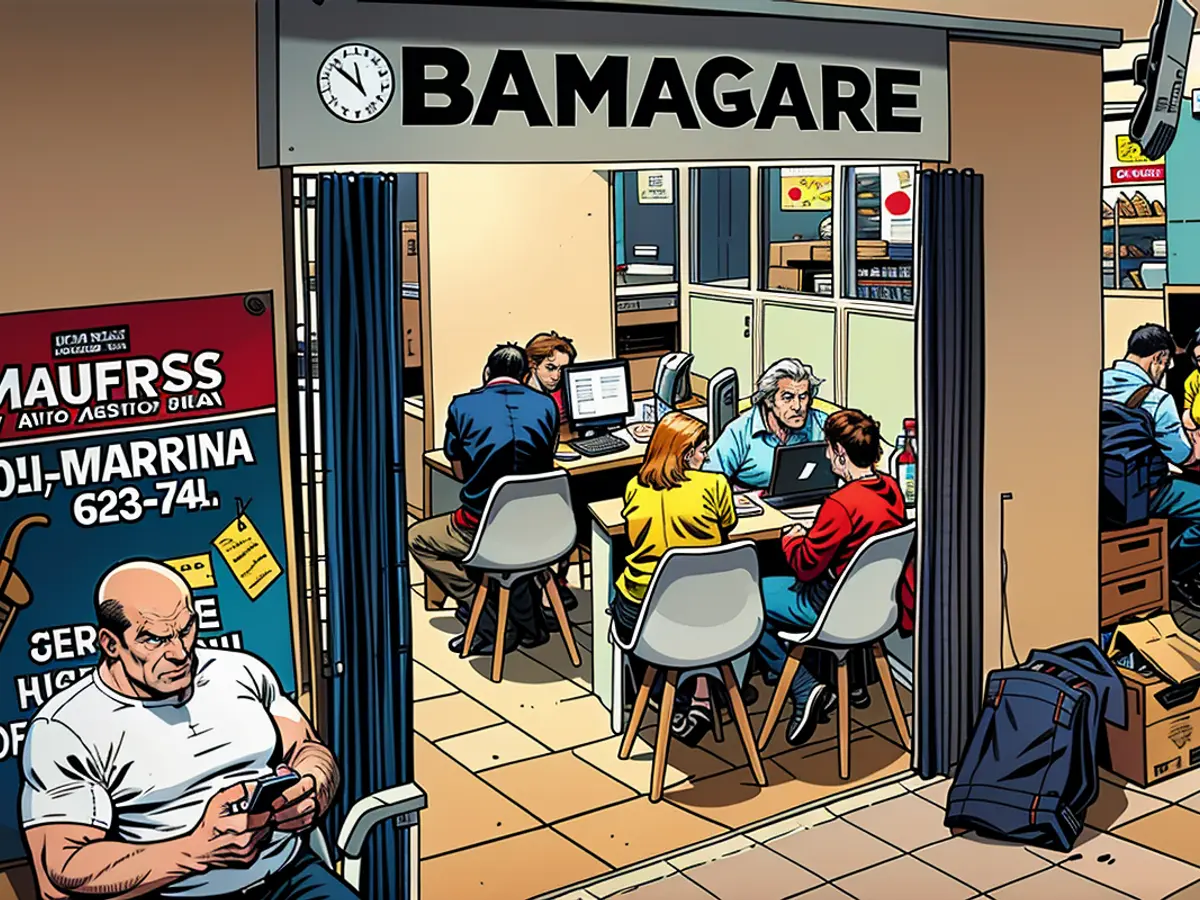As the Supreme Court contemplates another challenge to Obamacare, the upcoming election may determine whether the succeeding administration chooses to uphold it.
Conservative lower courts partially sided with the accusers, labeling certain directives as unlawful and potentially jeopardizing no-cost coverage for select services, such as numerous cancer screenings and a well-known heart medication.
The Biden administration's plea to the Supreme Court on Thursday to overturn this decision brings the issue of the law's conservative attack into focus ahead of elections. Although not a direct threat to the Affordable Care Act, supporters of the legislation argue that these mandates make it simpler for millions of Americans, particularly those from marginalized communities, to access preventative care and improve their health outcomes.
"This Court's scrutiny is warranted due to a court of appeals declaring an Act of Congress unlawful, and its reasoning could impose substantial practical repercussions," US Solicitor General Elizabeth Prelogar wrote in the latest petition to the justices. "Millions of Americans depend on insurance coverage for preventative services without financial responsibility."
The Supreme Court is unlikely to decide on accepting the case until after the elections. However, the recent appeal brings up the question of whether a potential second Trump administration would vocally protect the preventative care provisions if he wins the election. Trump's Justice Department, during his tenure, refused to defend the Affordable Care Act in a legal challenge brought by Republican-led states – a case that ultimately resulted in the Supreme Court dismissing arguments from both the Trump administration and a coalition of Republican-led states that the entire law should be dismissed.
CNN has reached out to the Trump campaign for comment on the current lawsuit. The Harris campaign declined to comment.
In this instance, the challengers – businesses and individuals from Texas – have argued that mandates requiring insurers to offer no-cost care for specific preventative services violate the Appointments Clause. The 5th US Circuit Court, a conservative appellate court, agreed with some of their arguments, ruling that certain post-enactment mandates from the US Preventive Services Task Force were unlawful.
Eliminating Obamacare's requirements for no-cost preventative care could make it less likely that Americans would seek crucial – and even life-saving – screenings and services aimed at early disease detection. These include lung cancer screenings for certain smokers and former smokers; colorectal cancer screenings for adults aged 45 to 49; the use of statins to prevent cardiovascular disease, as well as PrEP and counseling referrals for pregnant and postpartum women at increased risk of depression.
If upheld, this precedent would apply to all cases brought before Texas, Louisiana, and Mississippi courts. The appeals court overturned parts of a trial judge's ruling that would have blocked the mandates nationwide, narrowing the ruling to only affect the case's challengers.
Nevertheless, the Justice Department stated in its filing on Thursday that the appeals court ruling could encourage other courts in the circuit to issue wider-reaching orders that would "universally" block the federal government from enforcing the mandates.
"This Court's scrutiny is also warranted because of the significant legal and practical consequences of the court of appeals' decision," Prelogar wrote, arguing that the 5th Circuit's ruling "endangers a key part of the ACA that offers healthcare protections for millions of Americans."
For the first time since its enactment, Obamacare is not the main focus of the current presidential campaign, although Trump continues to express his intention to replace Obamacare with a better plan, and Vice President Kamala Harris has repeatedly accused him of wanting to abolish the law.
Representing the challengers is American First Legal, a conservative legal advocacy group led by former high-ranking officials in the Trump administration, including Trump White House aide Stephen Miller.
The challengers are also being represented by Jonathan Mitchell, a former solicitor general for Texas who played a role in crafting Texas' unique private enforcement abortion ban and who also represented Trump in a Colorado ballot access case.
Previous Supreme Court fights over the law
The ongoing case, Braidwood Management v. Becerra, is merely the latest affliction over the Affordable Care Act that the justices have been requested to consider.
In the most recent significant case, the conservative Supreme Court ruled 7-2 in 2021 to reject the Trump and Republican-led states' arguments that the entire law should be tossed out because Congress eliminated its individual mandate, which required Americans to have health insurance or face a penalty.
An earlier lawsuit targeting health insurance marketplaces set up under the law was dismissed by the Supreme Court, as was the initial legal challenge to the individual mandate. However, a split ruling from the first major Obamacare challenge weakened the law's expansion of Medicaid to more working-age adults.
As the legal war over the law raged on for over a decade, Republicans generally retreated from their promises to dismantle Obamacare legislatively, following a failed repeal attempt in 2017 that split the party and aided Democratic victories in the 2018 midterms.
In the current Braidwood case, a 5th Circuit panel ruled in June that some of the no-cost preventative care coverage mandates were unconstitutional because the task force members who recommended them were the type of "principal officers" that should have been appointed by the president and confirmed by the Senate. The ruling left intact the task force's recommendations that existed at the time the Affordable Care Act was enacted.
The request for Supreme Court review comes after the high court has issued other recent judgments concerning the executive branch's authority.
"Given the conservative 5th Circuit Court's ruling on the no-cost preventative care mandates, there are concerns about how a potential future Trump administration might approach this issue if they win the elections."
"Moreover, the Supreme Court's decision on accepting the Braidwood Management v. Becerra case could have significant implications for the affordability and accessibility of preventative care services, particularly for marginalized communities."








